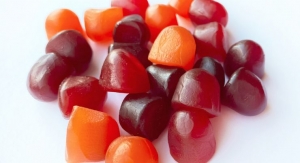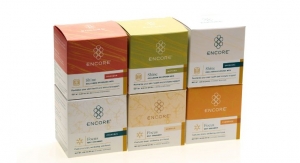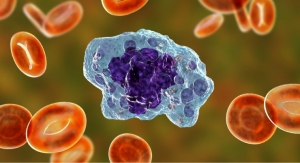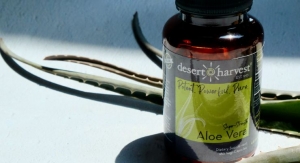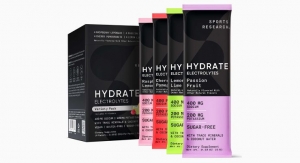Mike Montemarano, Associate Editor 05.04.21
Ingredients supplier Monteloeder recently announced the publication of a trial which found that a polyphenol-rich botanical complex called Zeropollution was significantly linked to skin health benefits, in a combination of outcomes which included reduced signs of skin aging, strengthened skin barrier function, and a reduction in oxidative stress.
Zeropollution is a complex of four botanical extracts, sourced from Olea europaea (European olive) leaf, Lippia citriodora (lemon verbena), Rosmarinus officinalis (Rosemary), and Sophora japonica. In the newly-published study, researchers concluded that Zeropollution reduced oxidative stress-induced skin damage, and that the oral intake of this supplement may counteract the effects that environmental pollution exposure may have on the skin.
Notably, the researchers observed that supplementation was linked with decreased wrinkle depth, increased elasticity and firmness, strengthened skin barrier function, and reduction of dark spots, following two weeks of daily use.
The study, published in the journal Food and Nutrition Research, was designed to assess the efficacy of the supplement in reducing pollution-induced oxidative stress, as well as a variety of signs of skin aging in 100 female subjects between the. Ages of 35 and 65 years old. The participants were generally in good health, had normal or sensitive skin, and spent at least two hours outdoors daily in a polluted urban area.
The study included several measurements, including: total antioxidant capacity on saliva; oxidative damage on skin via lipoperoxides content; skin moisturization; transepidermal water loss; skin radiance and color; skin elasticity; skin sebum content; wrinkle depth; and skin roughness. Following 12 weeks of supplementation, the authors of the study reported significant improvements in each of these measured parameters.
“We are elated with the results of this breakthrough research and the support it lends to the efficacy of beauty-from-within solutions, and potential benefits of complementing the use of topical skincare and shielding products by incorporating a dietary approach as part of a more sophisticated skin-protection strategy,” Nuria Caturia, chief R&D officer at Monteloeder, said.
The study also included a self-assessment questionnaire, in which 82% of participants in the treatment group reported that they would purchase the product based on their experience with it during the clinical trial.
Exposure to air pollution can result in accelerated skin aging, and inflammatory or allergic skin conditions such as atopic dermatitis and acne, Monteloeder said in the announcement. While cosmetics can protect the most external layers of the skin from pollutants, internal structures of the skin are still affected by environmental stressors, the company said, such as when certain pollutants penetrate the skin via indirect systemic distribution of inhaled or ingested pollutants through the blood, such as ultra-fine particulates and PAHs.
Mike Montemarano has been the Associate Editor of Nutraceuticals World since February 2020. He can be reached at mmontemarano@rodmanmedia.com.
Zeropollution is a complex of four botanical extracts, sourced from Olea europaea (European olive) leaf, Lippia citriodora (lemon verbena), Rosmarinus officinalis (Rosemary), and Sophora japonica. In the newly-published study, researchers concluded that Zeropollution reduced oxidative stress-induced skin damage, and that the oral intake of this supplement may counteract the effects that environmental pollution exposure may have on the skin.
Notably, the researchers observed that supplementation was linked with decreased wrinkle depth, increased elasticity and firmness, strengthened skin barrier function, and reduction of dark spots, following two weeks of daily use.
The study, published in the journal Food and Nutrition Research, was designed to assess the efficacy of the supplement in reducing pollution-induced oxidative stress, as well as a variety of signs of skin aging in 100 female subjects between the. Ages of 35 and 65 years old. The participants were generally in good health, had normal or sensitive skin, and spent at least two hours outdoors daily in a polluted urban area.
The study included several measurements, including: total antioxidant capacity on saliva; oxidative damage on skin via lipoperoxides content; skin moisturization; transepidermal water loss; skin radiance and color; skin elasticity; skin sebum content; wrinkle depth; and skin roughness. Following 12 weeks of supplementation, the authors of the study reported significant improvements in each of these measured parameters.
“We are elated with the results of this breakthrough research and the support it lends to the efficacy of beauty-from-within solutions, and potential benefits of complementing the use of topical skincare and shielding products by incorporating a dietary approach as part of a more sophisticated skin-protection strategy,” Nuria Caturia, chief R&D officer at Monteloeder, said.
The study also included a self-assessment questionnaire, in which 82% of participants in the treatment group reported that they would purchase the product based on their experience with it during the clinical trial.
Exposure to air pollution can result in accelerated skin aging, and inflammatory or allergic skin conditions such as atopic dermatitis and acne, Monteloeder said in the announcement. While cosmetics can protect the most external layers of the skin from pollutants, internal structures of the skin are still affected by environmental stressors, the company said, such as when certain pollutants penetrate the skin via indirect systemic distribution of inhaled or ingested pollutants through the blood, such as ultra-fine particulates and PAHs.
Mike Montemarano has been the Associate Editor of Nutraceuticals World since February 2020. He can be reached at mmontemarano@rodmanmedia.com.




